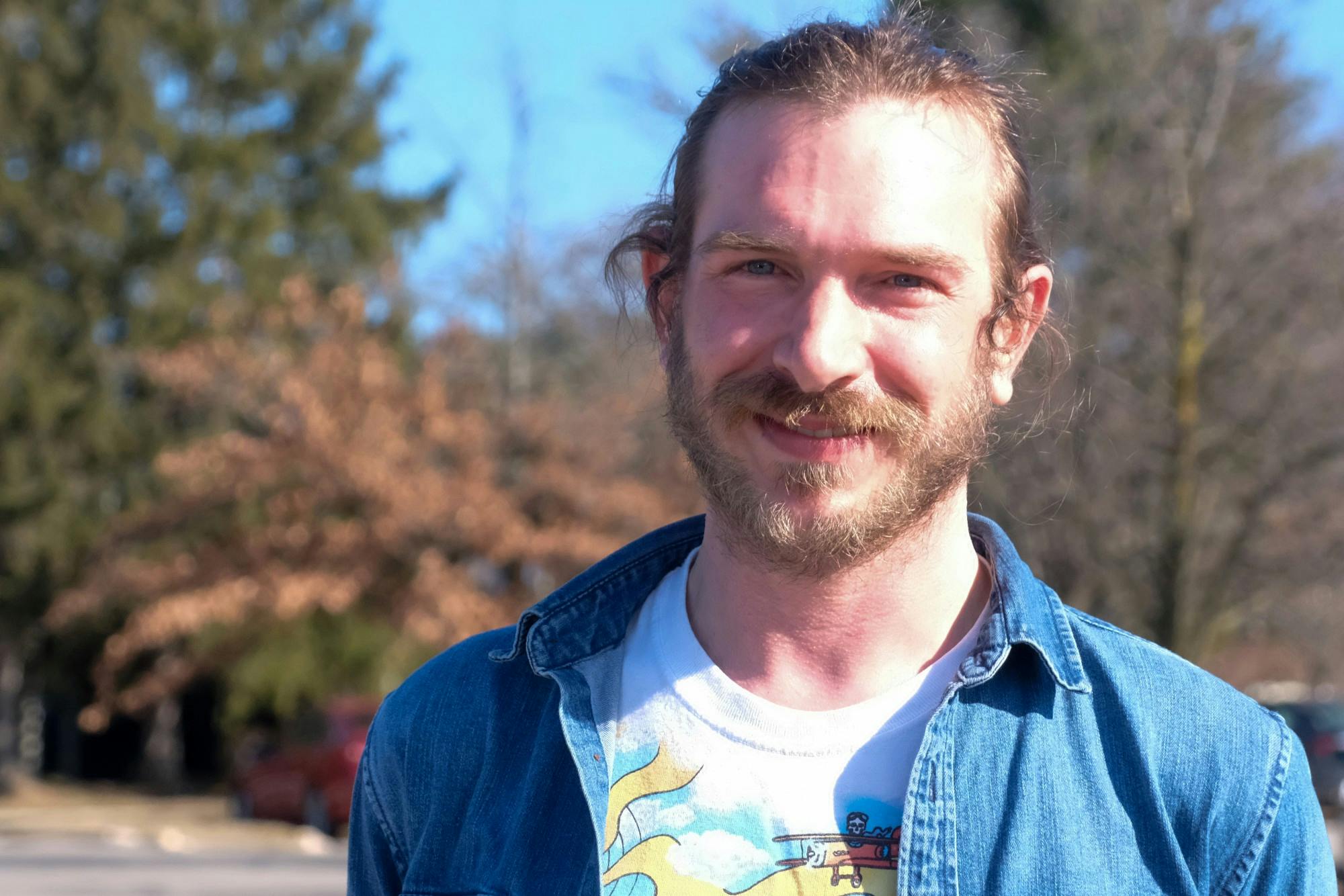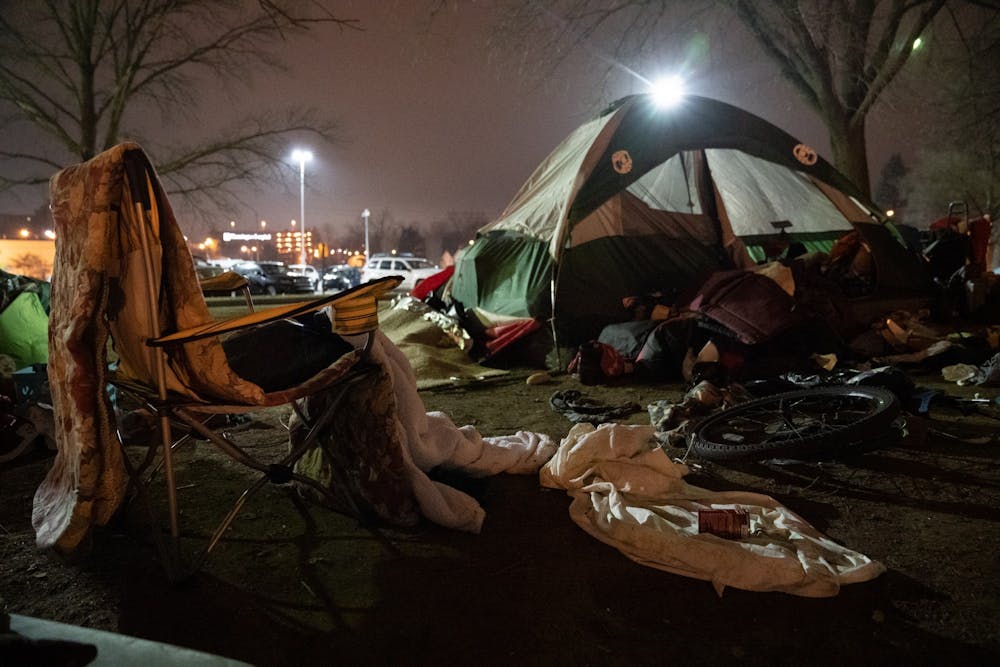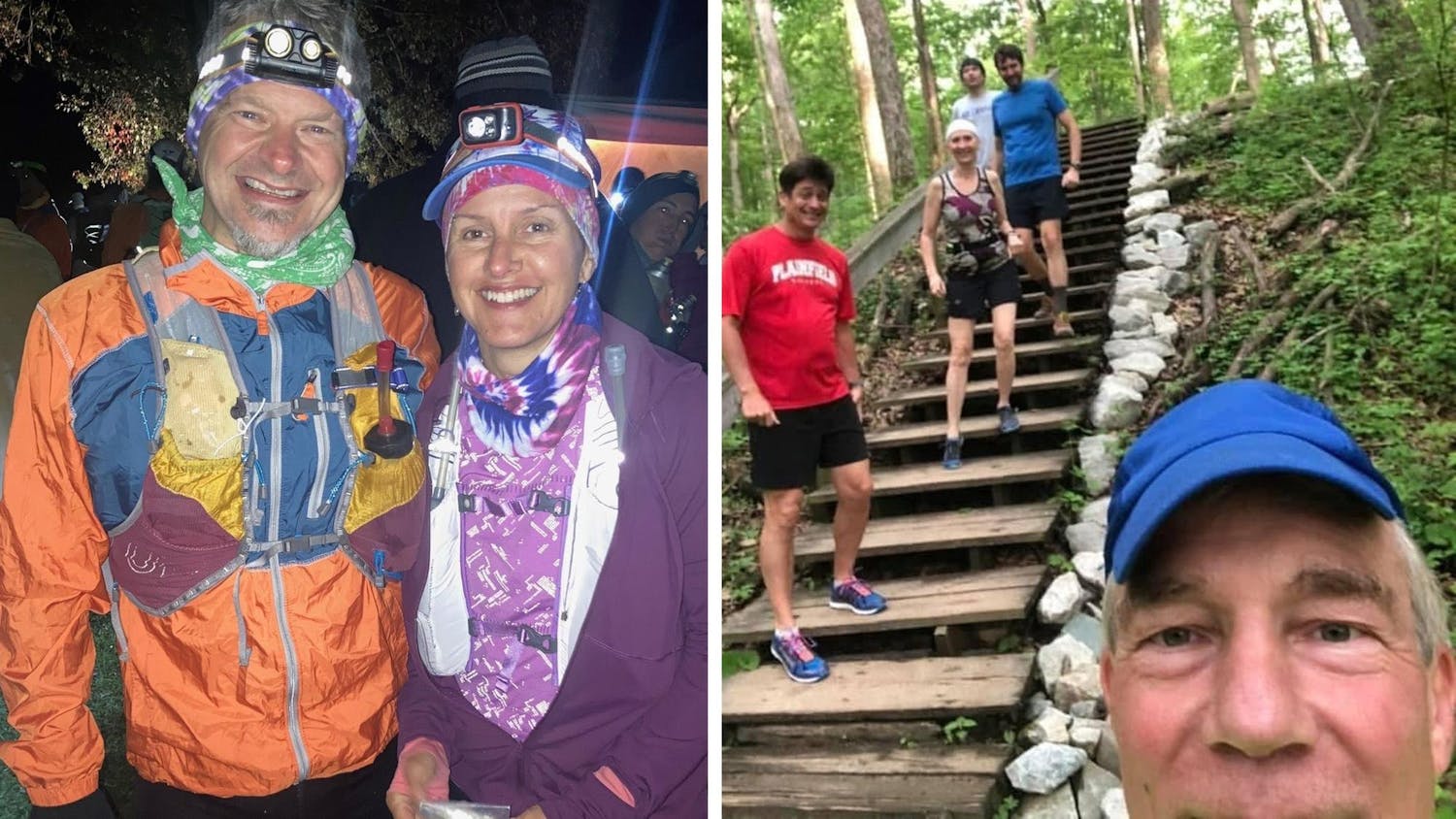The Bloomington City Council struck down a proposed ordinance that would protect homeless encampments by a vote of 4-4 Thursday. Nine days earlier, the Greater Bloomington Chamber of Commerce announced in a press release that it opposed the ordinance based on overwhelmingly negative survey feedback from more than 100 of its members.
[Related: Bloomington City Council votes down proposal to protect homeless encampments 4-4]
A 26-page document of anonymous excerpts from the survey is available on the Chamber’s website. The Indiana Daily Student fact-checked some of the claims made by members of the Chamber because their comments formed the basis of the organization’s opposition to the ordinance, according to the press release.
The Chamber is an organization that advocates for the interests of the business community, according to its website. Membership to the Chamber of Commerce can cost anywhere from $115 per year to $2,700 per year. Many members are local business owners.
Erin Predmore, President of the Chamber of Commerce, wrote in an email, “I realize that some of the comments didn't align with the Chamber's position or with what we want our community to be.”
Predmore said because the Chamber believes in transparency, they published all of the comments whether or not they supported the position of the Chamber.
The Chamber’s Feb. 23 press release said the organization’s opposition to the ordinance was based on feedback from its members. Predmore did not respond when asked which comments did not align with the Chamber’s position if the Chamber’s opposition to the ordinance was based on the comments.
Marc Teller, a board member of Bloomington Homeless Coalition, said the comments from the Chamber were detrimental to the unhoused community and reverted to dehumanizing and demeaning stereotypes of those experiencing homelessness. He said many of the comments from the Chamber showed how little some members of the Bloomington community understand the struggle of what it's like to be unhoused.

“It really points to the bigotry and the classism that we have in this community and all over the nation, really,” Teller said.
[Related: OPINION: Bloomington’s Chamber of Commerce confirmed it hates the unhoused community]
A statement from Predmore in the press release said members of the Chamber expressed “genuine concern for the plight of people who have no place to go.” Of more than 170 public comments made by Chamber members, only three comments used the word “concern” in relation to the safety or welfare of the unhoused. Two members said they “sympathize” and are “not unsympathetic” to the unhoused.
[Related: Bloomington official: Sheltering unhoused people isn’t part of city’s ‘core service area’]
The IDS chose seven claims to fact check. Specific wording varied, but the substance of each claim below was repeated more than once by different members of the Chamber.
Claim:
Teller said many members of the unhoused community hold one if not multiple jobs, meaning some members of the unhoused community do pay taxes. He said many remain houseless as a result of high rent prices in the area.
In February, the IDS published the stories of multiple members of the unhoused community who worked jobs or were receiving social security benefits, which can also be taxable, according to the United States Social Security Administration.
[Related: Left in the cold: Members of Bloomington’s unhoused community describe hostility, danger]
Even if those experiencing homelessness don’t pay taxes, Teller said, they are still human beings. The idea that paying taxes gives you more rights is angering, he said.
Claim:
Teller said the Bloomington Homeless Coalition, by virtue of its existence, disproves this statement. The coalition was founded by two members of the unhoused community who wanted to educate the Bloomington community and help break down stereotypes of the way they were viewed, he said.
“When you talk to these people and they talk with you,” Teller said, “you will find that they are full of love for this community.”
Claim: Three different respondents to the survey said Kroger threatened to leave its location by Seminary Park.
Community member Renee Miller told the Bloomingtonian, “Associate Communications Engagement Manager, Ethan Fager, of the regional office of Kroger in Indianapolis has made a statement that there are no plans or communications of either under performance or closing anywhere in their pipeline for this location. He stated that these statements were nothing more than rumor and lacked factual backing from their company.”
Claim: Two statements said those experiencing homelessness face little to no consequences for illegal behavior.
Teller said these statements in particular confused him because he believed the ordinance was in reaction to evictions of Seminary Park, where Bloomington Police Department removed encampments of unhoused people on Dec. 9 and Jan. 14. He said he had never seen an instance where an unhoused person was given preferential treatment by police officers.
Claim: At least 16 statements mentioned concern about needles and syringes in parks.
Teller said that while there are valid concerns over needles, the comments relied on generalizations. Not all people experiencing homelessness use needles and not all of the people who use needles and leave them in the park are unhoused, he said.
Claim: At least five responses mentioned human waste in the parks as a concern.
Teller said concerns over hygiene were also valid, but that this was an issue that the ordinance could have helped fix. The ordinance states that the city may designate certain areas for the use of encampments and that they must include access to restrooms.
Claim: Two respondents said they were concerned about violence from the unhoused community. Three other statements mentioned being fearful of those experiencing homelessness.
Those experiencing homelessness are more likely to be victims of crime than the general population, according to the National Coalition for the Homeless.
“These are people that want to better themselves and want not to be unhoused,” he said. “They want to be members of this society. But society keeps pushing them away.”




